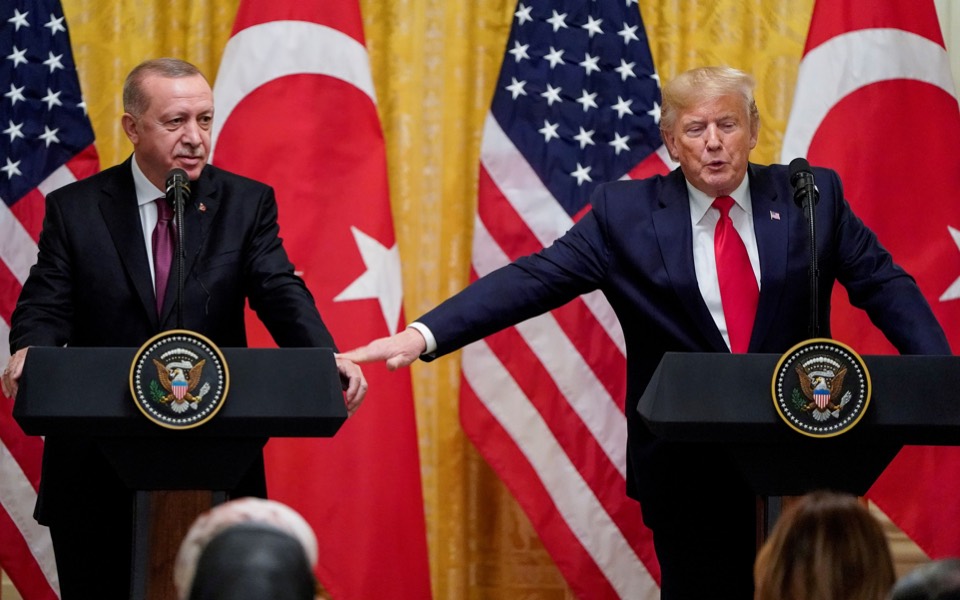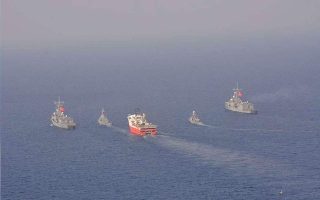Dangerous games in the East Med

Developments in the Eastern Mediterranean are like a dangerous game of three-dimensional tic-tac-toe, in which simple-looking moves are complicated by conflicting dynamics among the players and in the relationships between them.
For example, the hitherto greatest power in the region, the United States of America, has been acting in an ambivalent manner: President Donald Trump encourages his Turkish counterpart, Recep Tayyip Erdogan, and then protects him from the consequences when US diplomacy and state authorities try to place limits on Turkey’s behavior. Russia is both Turkey’s partner and a rival; together they collaborate to undermine a strangely passive NATO. But just as circumstances forced Greece to jump into action to protect its interests, so all the countries in the region, the European Union and NATO are being called upon to recognize the dangers of inertia and of sticking to policies that might undermine their alliances.
With its Libyan “leap,” Turkey is seeking to obstruct cooperation between Greece, Cyprus, Israel, Egypt and other countries, while also strengthening its position south of Greece. If the United Nations ban on sending weapons and mercenaries to Libya had been imposed effectively, Turkey’s involvement there might have been prevented.
Moreover, French President Emmanuel Macron’s warnings that NATO must wake up to the Turkish threat will most likely not lead to any action. Neither does the EU seem prepared to present a strong, united front against Ankara, apart from statements condemning some of Turkey’s activities.
If every country and organization finds reasons to appease Turkey, the situation will get worse. To avoid a proxy war in Libya and further tension in the Eastern Mediterranean, there is need for intensive diplomatic activity and a clear picture of how various differences will be solved peacefully.
In this context, Israel’s demand for support for its plan to annex the West Bank will obstruct closer cooperation with many countries; Egypt ought to show respect for human rights and so lift another block to cooperation; the citizens of Cyprus must seek the just and viable reunification of their country; Greece needs to reach agreement with Egypt on their maritime zones.
If, in addition to this, the EU and NATO can apply a strict policy of principles and laws, they will strengthen the hand of diplomacy and protect peace. Anything less encourages belligerence.





